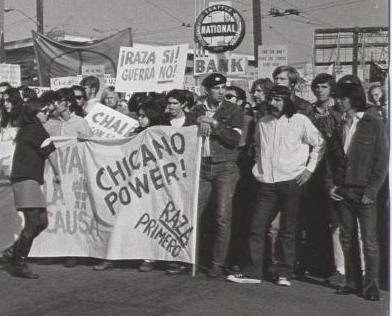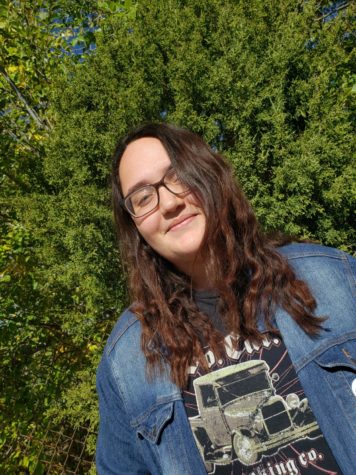Chicano Studies Should be Taught in Schools

Courtesy of depts.washingtonedu
Chicanos gather in protest of equality.
December 16, 2019
As a child, my parents always reminded me of the importance of my cultural heritage and why I should take pride in who I am.
Through frequent discussions about the Chicano Movement and social justice, my childhood was filled with these imperative conversations regularly. I wish other kids could have had the ability to learn about Chicano studies. My fervid ardor about my identity comes from my great-grandfather, Rodolfo “Corky” Gonzales. Being a key figure amidst an era of civil rights, my great-grandfather advocated for Chicano Americans and did so with enough fortitude to lead masses of people during the 1960s.
The 1960s was an era of social turbulence, racial tension, and political partition in the United States that marginalized Americans had to endure. Through civil disobedience, protests, and marches, most minorities were able to achieve the social mobility and the civil recognition that they deserved. However, the large movement and faction of people who aren’t recognized for their efforts are Chicanos and the Chicano Movement.
The Chicano identity is a culturally and politically charged appellation: the identity a cross between Native Americans and those of Mexican descent. Those who were born in America and born with Mexican ancestry in their blood have identified with this term continuously since its emergence and have associated the term with pride and empowerment. Although a title that is more commonly used is Mexican-American, some believe the Chicano title holds higher meaning.
The Chicano Movement was a response to the social, political, and economic challenges that Chicanos faced before, during, and after the 1960s. The movement encompassed a variety of struggles–from police brutality, to enhanced education, voting rights, and higher and equitable wages. The amount of issues that they had to deal with were nearly endless and the amount of alienation they felt was stifling. Despite these struggles, several activists and the Chicano community persisted.
Denver, Colorado became a prominent place in the Chicano Movement. Gonzales collaborated with other famous activists like Cesar Chavez, the founder of the United Farm Workers Union, and Martin Luther King Jr. They spent their time running campaigns and advocating for both ethnic groups, their efforts inspiring myriad other activists, artists, and supporters . A lot of the youth were encouraged to engage in these protests in order to speak on behalf of their own race. The Chicanismo ethic, an ideology based on the social uprising of Chicanos, was what comprised the movement in its totality and what gave Chicano activists and artists the power to propose change.
Now, you might be wondering, why does this matter, and isn’t your perspective biased? Well, although I seem biased considering that my great-grandfather made great contributions to this movement, that’s not my complete reasoning. Yes, a part of my conviction derives from my immense passion for my cultural heritage, but it also comes from my appreciation and deep respect for history and social justice. Offering students ethnic courses that include their culture and history will engage them greatly and lead them to ask more questions.
I believe that Chicano studies should be implemented in the school curriculum for a variety of different reasons, those being that students will become more knowledgeable about others and that Mexican-Americans will receive the acknowledgment that they deserve. Representation is important to me, and should be important to our fellow educators. I’m not condemning all of my previous and present teachers, for what they have taught me is far greater than what I could have taught myself about history. However, teaching people about who they are and being representational of all the diverse people in this world is what will change people’s perspectives.
Erased by historians, neglected by teachers, and ignored by most of my fellow peers, Chicano history ceases to exist, and I think that is absolutely ludicrous. My family members and ancestors did not endure decades of racial discrimination just so their history is left disregarded. History, education, and knowledge are extremely important and must be valued intensively in order for the world to reflect on their past and grow from it. And while the fight for this continues, I believe that it is our duty as human beings to make change and learn from our forefathers to make the world a better place.

